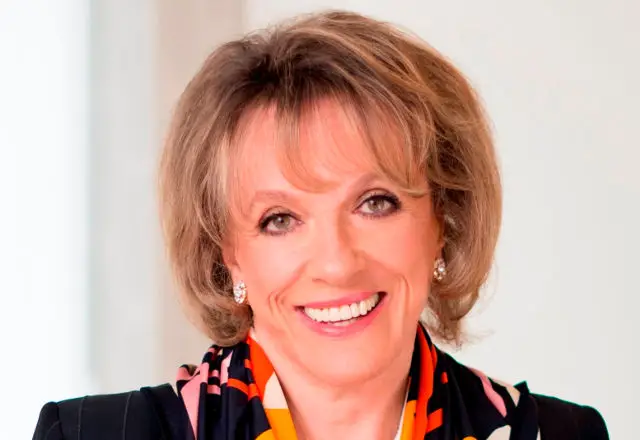Childline founder, Dame Esther Rantzen, makes an impassioned call to the readers of the Isle of Wight who have benefitted from the NSPCC-supported service to contact her directly. Ed
I will never forget the night we launched Childline in October 1986. Put simply the phone lines were running red hot. In the floor above our office was a huge telephone exchange and a BT engineer took me up to watch the impact of 50,000 attempted calls. The machinery was roaring like an express train going through a tunnel, unforgettable.
From then I knew children desperately needed an outlet and a safe space to talk about their problems. I still remember some of the calls I took that first night; children in tears describing suffering they had never been able to talk about to anyone else.
Children speaking openly
My sister, a trained social worker, came off the lines in shock.
She told me,
“We knew this happened to children, but face to face in front of a social worker they find it almost impossible to talk about it. I’ve never heard children speaking as openly as they do to Childline.”
Partnership with the NSPCC
Some things have changed enormously since then. We are now part of the NSPCC, a much-loved charity with the strength and security to enable Childline to launch an online counselling service and a new phone app, For Me.
Also the old red phone boxes, which used to be the source of so many calls to Childline, have been replaced by mobile phones. And when young people talk to our counsellors we are hearing about issues that didn’t exist back in 1986, most obviously those emanating from excessive use of the Internet, and others that were not as prevalent such as mental health and concerns about body image.
But amongst all this evolution and, at times, revolution, the central premise of Childline remains the same. That is children and teenagers being able to turn to us for free and confidential advice and support, available 24/7, 365 days a year.
The fact that 50,742 children and young people contacted Childline’s London base in 2016/17 is testament to the enduring need for the service.
Work on the Isle of Wight
Childline is also promoted to primary school children on the Isle of Wight as a place they can turn to for help and advice via the NSPCC’s Speak Out Stay Safe service.
It teaches children aged 4 to 11, in an age-appropriate way, about abuse in all its forms, how to recognise the signs and how to protect themselves.
Rise in self-harm
One young person, Naomi, who contacted Childline in the past, had really low self-esteem. While she found friends online with similar interests to her, she also had her confidence knocked when she would see them pictured together at a party that she wasn’t invited to or didn’t receive any feedback on a photo she had posted of herself.
Naomi resulted to self-harming because she felt like she ‘deserved to be punished’. Thankfully Childline helped her understand she was entitled to support and gave her the confidence to speak out to her teachers at school. Now Naomi is a trained Childline counsellor, helping others with their problems.
Let us know if we have helped you
But now I need your help. When Childline counsellors talk to young people they get a glimpse into their troubled lives, but they rarely hear the end of the story. We need to know how the service helped you in the long term.
Did speaking to a Childline counsellor make a difference to your life? Did we support, comfort and protect you, as we hoped?
Telling us about your experience will enable us to reach many other young people who are still out there in need of our support and advice.
Please contact me on: [email protected]





